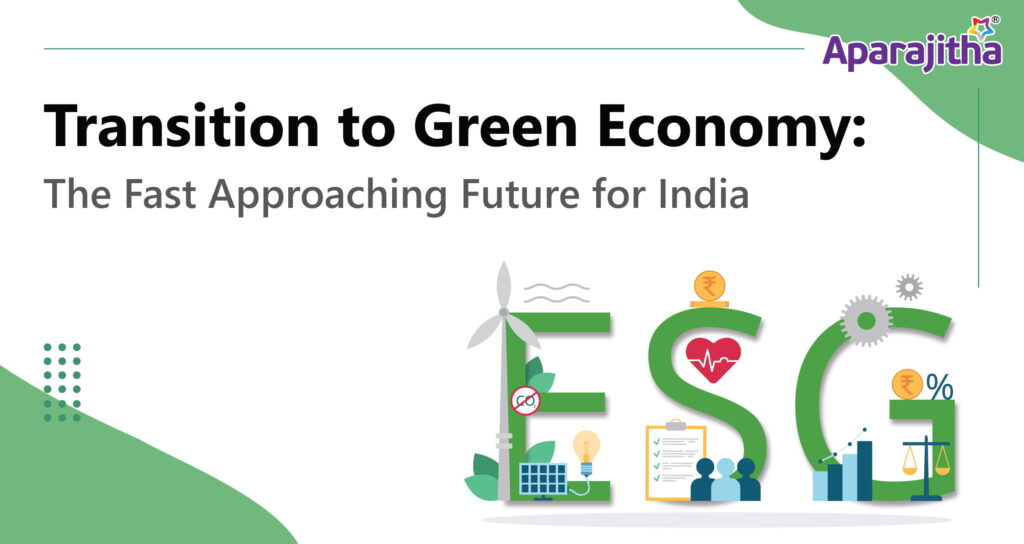The importance of ESG
Conversations around environmental protection, sustainability, and being eco-friendly are increasingly gaining momentum for decades. From individuals to corporate houses, from respective Governmental authorities to The United Nations, steps are being promoted and taken for transitioning to Green Economy:
[1]. Through a report published in 2012, the United Nations Environment Programme has emphasised the importance of sustainability and social responsibility engaged in the functioning of a corporate to give long-term benefits.
[2] For any green initiative to yield long-term benefits, it is essential to keep in mind the guiding principle of “Growth, Inclusion, and Sustainability,” which are interlinked with each other.
[3] Growth, being the ultimate motivator for any entity, has to be achieved in a manner that is inclusive of the society (such as eradicating poverty) and is sustainable to ensure long term benefits.
India is a developing nation, and proactive steps towards sustainability can make a huge impact on the nation’s long-term goal. The Budget 2023-2024 demonstrated India’s commitment to fighting climate change, preserving biodiversity, and sustainable development. In recent news, SEBI approved certain Key Performance Indicators for Business Responsibility and Sustainability Report (BRSR) in its Board Meeting to make the Environmental, Social, and Governance (ESG) Disclosures more reliable.
Why companies should follow good ESG practices
SEBI further decided that the ESG Rating Providers (ERPs) must consider Indian and international parameters while rating. This will be given a separate category, “Core BRSR,” – which will apply to the top 150 companies for the Financial Year 2023-24 and gradually increase to the top 1000 companies by the Financial Year 2026 – 27. SEBI decided that the companies will also be analysed based on their ESG footprint in the value chain, increasing the transparency and the threshold for the companies to improve their ESG practices.
The focus on ESG practices and their implementation is a boon for the environment and the companies. The transition towards green practices ensures that companies with good ESG practices are more likely to succeed in the long run. The benefits of good ESG practices by a Company are as follows:
- Consumers are becoming more aware of environmental issues and are now basing their consumption/ purchase not just on prices, usefulness, and other factors. They are now going beyond and factoring in the ESG activities of the manufacturers and the stakeholders involved.
- A sustainable and socially responsible company is more likely to employ other companies as its third-party vendors or is more likely to get into contracts with companies with good ESG practices. This ensures expansion in business.
- The brand reputation also increases with good ESG practices. Customers are more likely to trust and rely on such companies.
- With increased trust, the sales of a company are likely to increase.
- With new regulations being introduced frequently by the government, companies with good ESG practices will likely have a higher regulatory compliance score.
- With better regulatory compliance scores, companies with good ESG practices are more likely to attract more investment.
Sustainability for better profitability
The above points show how following good ESG practices financially benefits a company and adds value to the companies that proactively ensure sustainable practices through their functioning. In India, companies such as Maruti Suzuki, Proctor & Gamble Hygiene & Healthcare, HUL, etc., have seen tremendous improvements in their share values after taking socially responsible and sustainable steps. Apple has envisioned becoming carbon neutral throughout its operations, including its manufacturing supply chain, by 2030.
In conclusion, leading companies worldwide are progressing towards sustainability and socially responsible practices. These practices offer better financial performance and increased profitability.
Shourya Mittal Gupta, Thenmozhi Krishnakumar
Team – Compliance Knowledge Hub,
APARAJITHA CORPORATE SERVICES PRIVATE LIMITED
[1] United Nations Environment Programme (UNEP) (2011). Towards a Green Economy: Pathways to Sustainable Development and Poverty Eradication. Available at: http://www.unep.org/greeneconomy
[2] UNEP, 2012, The Business Case for the Green Economy. Sustainable Return on Investment
[3] Bob Sternfels, Tracy Francis, Anu Madgavkar, Sven Smit, Growth for All, Growth for good. Here, we offer a proposal for business, government, and society leaders







